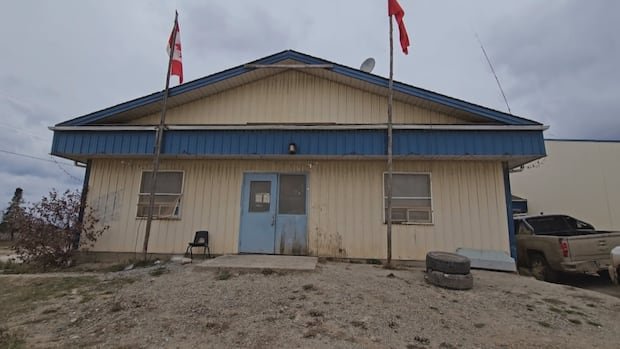A judge has dismissed comments a Manitoba woman made during her arrest about consuming alcohol before hitting her boyfriend with a school bus because her Charter rights were breached.
The woman told a First Nations safety officer and RCMP in Garden Hill First Nation, in northeastern Manitoba, that she accidentally hit her boyfriend during an attempt to steer the bus away to prevent him from trying to drive while intoxicated on June 26, 2023.
She was charged with impaired driving causing bodily harm, criminal negligence causing bodily harm and dangerous operation of a vehicle causing bodily harm.
Provincial court Judge Michelle Bright wrote in a decision in late December that a police officer held the woman in custody for nearly five hours without telling her a reason for her detention, that she had a right to silence and that she could consult with a lawyer.
Bright’s decision refers to Section 10 of the Charter of Rights and Freedoms, including the following section:
“Everyone has the right on arrest or detention
- to be informed promptly of the reasons therefor;
- to retain and instruct counsel without delay and to be informed of that right.”
During a separate voir dire hearing to determine whether the comments and video recording would be admissible in court, the police officer testified that she responded to a call about an injured man lying on the ground at a residence around 9:30 a.m. and told the woman “to come to the police station with her” for questioning.
The officer thought the woman might have been involved in a criminal offence because she kept repeating “he comes towards me” while they were at the scene, the decision said. The woman, who had no criminal record or prior interactions with police, complied with the officer and went to the station.
While the woman was placed in a holding cell, she told the police officer she “ran over” her boyfriend — comments she later wanted to be excluded from her case because she was unable to make a “meaningful and fully informed decision” about whether to co-operate with the police investigation, the court document said.
No knowledge of Charter
Bright questioned the constable about her training as a First Nations safety officer. She said she had training in proper detention and arrest procedures, but denied having knowledge of or training related to the Canadian Charter of Rights and Freedoms, the decision said.
The police officer told the judge she had been involved in 50 arrests since she became an officer and had never offered a detainee the opportunity to contact a lawyer.
“While I do not find that [the police officer] was acting in bad faith, it appears based on her evidence that there may be serious systemic issues relating to the provision of Charter rights for people detained at the Garden Hill police station that are extremely concerning if they are indeed as routine as [she] testified to,” Bright said in the decision.

A member of the Island Lake RCMP detachment went to the police station in the afternoon to further question the woman.
RCMP arrested the woman for criminal negligence causing bodily harm and dangerous operation of a vehicle causing bodily harm before taking her back to their detachment, the court document said.
The woman told RCMP in a video recording, which occurred without her knowledge, about what happened at the residence. She also said she’d been drinking a homemade alcoholic beverage with her boyfriend and “felt some degree of intoxication prior to driving,” the decision said.
The RCMP officer continued to ask the woman questions about her alcohol consumption and then warned her that she might be charged with impaired driving, the judge wrote.
Before arresting the woman, RCMP spoke with witnesses at the residence who said the woman had been drinking.
Bright said the RCMP officer “deliberately failed to inform” the woman before the recording was made that she was being investigated for impaired driving and that it was part of the reason for her detention.
Without this information, the woman was deprived of the ability to make a choice about whether to speak with a lawyer, the court document said.
“The breaches in this case are extremely serious,” Bright said.
“The applicant’s rights were violated by multiple authorities over the course of multiple hours. She was a young, inexperienced Indigenous woman who was at a significant disadvantage in dealing with peace officers and police.”
The comments and video recording were excluded from evidence.





